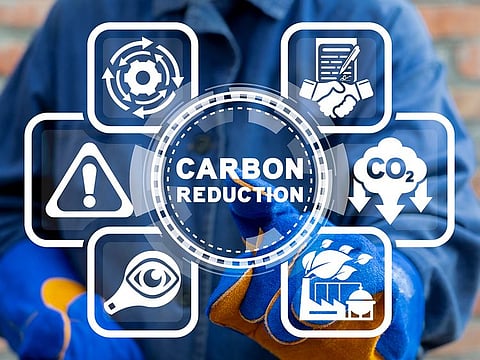UAE’s existing buildings need a green retrofit – and that too on a tight budget
Building to latest green standards is relatively easy, but older ones need working on

The construction industry contributes around 40 per cent to worldwide carbon emissions. In the UAE, cement production alone is responsible for approximately 6-7 per cent of the carbon inventory. Green certified buildings and construction practices are therefore a necessity for a better, more sustainable future. Of late, they also make a lot more business sense.
Developers, contractors, and end consumers understand the tangible benefits of sustainable practices from low utility bills to tenants willing to pay premiums to occupy ‘green’ buildings. Leading global investors strongly agree that green strategies can drive higher occupancy rates, rent prices, and tenant retention.
Eco-friendly buildings also offer incredible energy and water savings over their lifespan, which often greatly outweigh their early investment cost. In fact, the more green a building is, the higher its savings. What makes eco-friendly buildings eco-friendly?
Many aspects of real estate can be optimised for lower carbon emissions. Modularly constructed buildings whose various parts are constructed ‘off’ site, generally have smaller carbon footprints and produce less material pollution. They also have a sturdier build.
Additionally, buildings that are fitted with solar panels and longer lasting LEDs produce electricity on-site and consume less of it. Simple measures such as upgrading HVACs by replacing pumps, fans, and motors will make the equipment more energy-efficient.
Implementing a waste management strategy is another way real estate, both existing and new, can become greener. These include banning single-use plastics, composting food waste, or incinerating it to be recycled as fuel, separating recyclable materials and paper from waste, and investing in freestanding, vertical gardens for cleaner air quality and sustainably grown fruits and vegetables. Investing in sensors and data tracking tools to help identify opportunities to further augment energy efficiency and regulating indoor temperatures through smart thermostats can enable the real estate sector to cut carbon emissions by 70 per cent.
‘Green’ impact on a building’s value
There is an increase in calls for eco-friendly construction practices and greener buildings throughout the world. The UAE’s landscape is no different, especially considering the country’s growing global prestige as a business hub.
Deadline to 2050
The UAE plans to achieve Net Zero emissions by 2050. It is doing so through alignment with key stakeholders, by continuously investing in and implementing renewable energy projects, and by promoting sustainable transportation. Taking the cue from the government, local companies, including key players in the real estate sector, are also working to lower their carbon emissions.
Businesses with ambitious ESG commitments are seeking rigorous sustainability standards in the buildings they occupy. As a business hub, the UAE with its green initiatives intends to make itself the perfect investment hub for sustainability-minded businesses.
If Dubai 2040 is a resounding success, it will drive overall higher value for property developments in the market. Additionally, the perceived value of a building also increases if its green certified while non-eco-friendly buildings can’t remotely compete at par.
Future forward
With around 70 per cent of the current building stock expected to stay in use by 2050 in major cities across the globe, decarbonising the built environment is an important step to achieving net zero. However, it’s a complex and expensive process that requires a commitment of $5.2 trillion over the next decade.
Like in several major cities, local projects will need to undergo deep energy retrofit as part of the UAE’s drive to achieve net zero by 2050. Thus far, Dubai has completed retrofitting for over 10,000 buildings. These can bring meaningful improvements to air quality, reduce chronic disease, and improve the health of people living nearby.
Companies stepping up to the challenge can help to rebuild the trust of the communities and positively impact the wider society on many fronts. From a business point of view, companies that embrace sustainability early on will be able to differentiate themselves in the market.
Decarbonisation is the need of the hour. But at the same time, its not a problem that can be solved by a select few. Collective action is needed to decarbonise real estate - starting from existing built environment and permeating the planning and delivery stages of new buildings. This is the only way forward to achieve a net zero carbon world. Those delivering sustainable, low-carbon, and resilient buildings will remain at the forefront of the market and their real estate assets will be worth a lot more than competitors not playing by the same rule book.
Sign up for the Daily Briefing
Get the latest news and updates straight to your inbox




